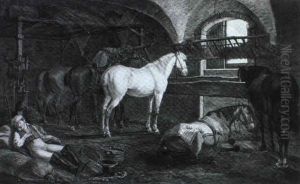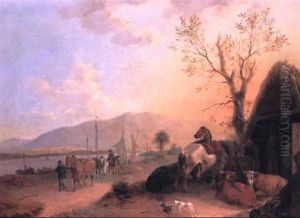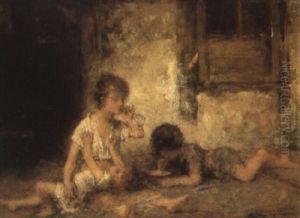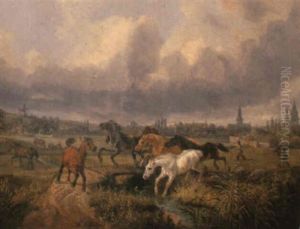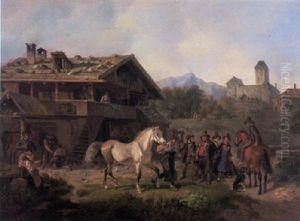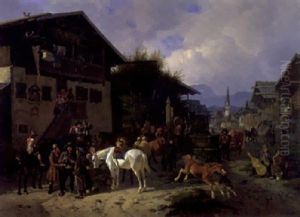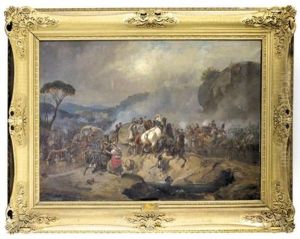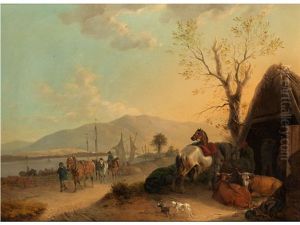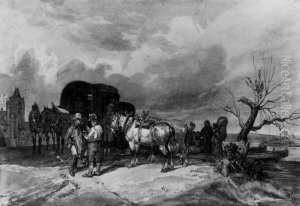August Franz Schelver Paintings
August Franz Joseph Karl Mayer, who later adopted the name August Franz Schelver, was a German Romantic naturalist, philosopher, and artist, born on November 1, 1778, in Frankfurt am Main. His contributions span across various fields, including natural history, philosophy, and art, reflecting the interdisciplinary spirit of the Romantic era.
Schelver initially studied medicine in Jena, where he was influenced by the early Romantic circle around the poet Novalis and the philosopher Friedrich Wilhelm Joseph Schelling. He developed a keen interest in Schelling's Naturphilosophie, a philosophical approach that sought to understand nature as a dynamic, living whole. This perspective profoundly influenced Schelver's work in both science and art, where he sought to transcend the traditional boundaries of academic disciplines.
Despite his engagement with various intellectual pursuits, detailed information on Schelver’s artistic endeavors specifically is rather scarce, and he is not primarily known for his visual art. Instead, his legacy is more closely associated with his philosophical and naturalist work. As a botanist, Schelver was interested in the metamorphosis of plants, a concept that was also significantly explored by Johann Wolfgang von Goethe. Schelver's fascination with the natural world was deeply interwoven with his philosophical inquiries, and he aimed to uncover the underlying principles that connected the natural and spiritual realms.
In his later life, Schelver continued to pursue these interdisciplinary interests, though he did not gain widespread recognition during his lifetime. He passed away on May 30, 1832, in Heidelberg. The extent of Schelver's artistic output and its impact on his contemporaries remain somewhat obscure, as his reputation is overshadowed by the more prominent figures of the time. Nevertheless, his work embodies the essence of Romantic thought, characterized by a quest for unity and a deep reverence for nature.



